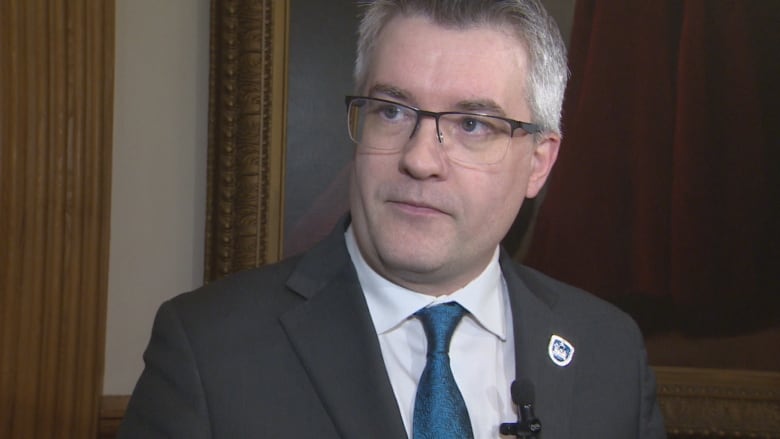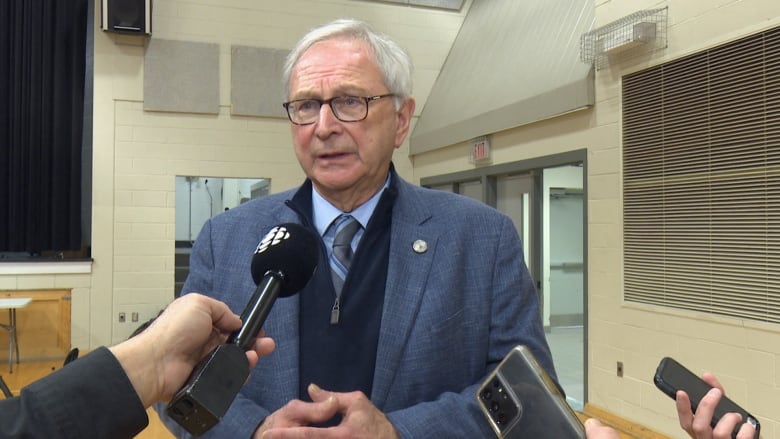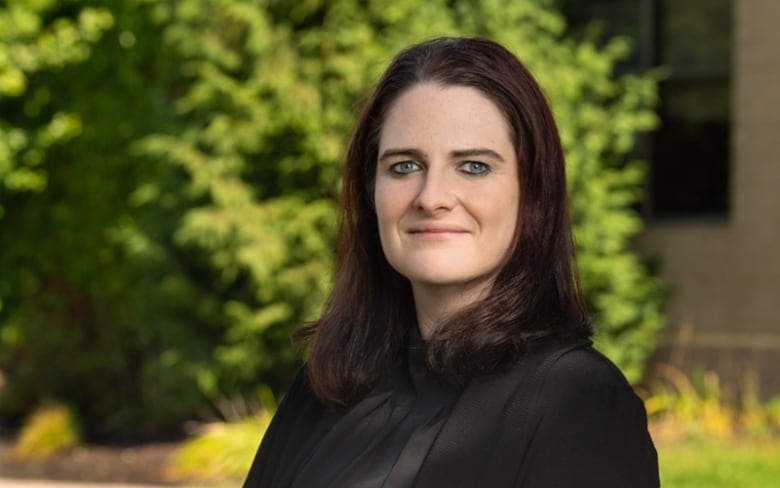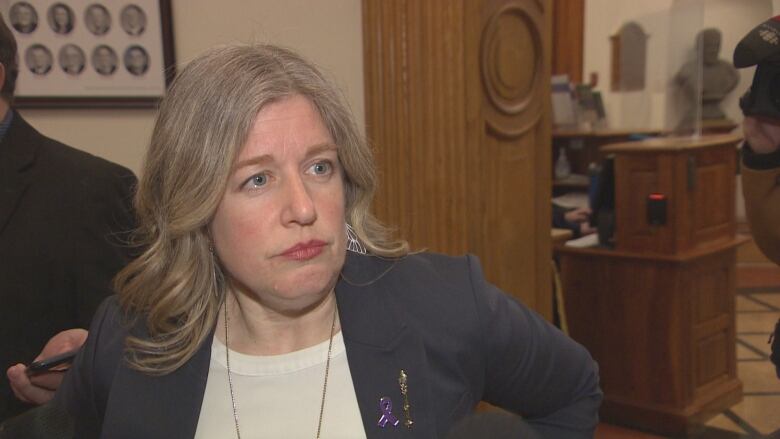Bill on forced addiction treatment will include evaluation process, minister says
Austin defends proposed legislation but critics call it patronizing

New Brunswick's public safety minister says there'll be a medical evaluation process as part of new legislation to force some people with severe addictions into treatment against their will.
Kris Austin told reporters that the bill will "absolutely, 100 per cent" include a process involving medical professionals, family members and others.
"We're not looking to arbitrarily just drag people into some sort of incarceration," Austin said Wednesday.
"It would be more than simply the minister of public safety to determine that, or even a police officer. This is something that the medical profession really has to have the final say on,whether treatment is warranted."

Premier Blaine Higgs's comments on Tuesday about the pending bill, the Compassionate Intervention Act, sparked criticism from housing advocates and addiction experts.
Higgs mentioned the bill when answering questions about two people who died in a fire at a tent encampment for homeless people in Saint John.
Health Minister Bruce Fitch acknowledged that he didn't know whether the proposed legislation would have done anything to prevent those two deaths, which remain under investigation.
University of New Brunswick Saint John associate professor Julia Woodhall-Melnik, who researches housing issues, said the government is heading in a dangerous direction with talk of forcing people into treatment.
"People are unhoused for multiple different reasons, and it's patronizing to say, as the government, 'we know what's best for you so just let us deal with your problems.'"
Austin had to correct some of Higgs's comments from Tuesday, when the premier suggested the legislation would apply to people on the street so that "we can help them find shelter so they will not die."

The minister said the bill will only apply in very severe cases of addiction, not to any homeless people refusing to enter shelters.
"Going to a treatment centre voluntarily is always better than involuntary," Austin said.
"But when you have people who are at the absolute bottom of their lives in addiction, incoherent most of the time, we have a responsibility as a society to help those people and try to get them into a treatment facility."
Woodhall-Melnik said people seeking voluntary addiction treatment are already encountering long waits so it's not clear whether the capacity exists to treat more people.

Higgs announced in his state of the province speech in January that the government plans to double the capacity of adult addiction rehabilitation programs and will launch a new four-to-six-month long program with an initial 50 beds.
The Mental Health Act already allows for the forced hospitalization of someone deemedat risk of causing themselves or others "imminent physical or psychological harm."
But that requires a psychiatric assessment and approval of a tribunal, and the hospitalization can't be for longer than 72 hours far too brief for addiction treatment, Woodhall-Melnik noted.
The Charter of Rights and Freedoms includes "the right not to be arbitrarily detained or imprisoned."
Austin couldn't say Wednesday how the government will ensure the new act doesn't violate that section.
"Fortunately, I'm the minister of public safety and there's a minister of justice that would be more prone to answer that question," he said.
"We have extreme cases of people in society and we are going to to do everything we can within our power to ensure those people have a chance of getting help, and that's what this is designed to do."
Austin also said "most" people with severe addictions living on the street"don't even know their own name."

"The way he spoke down about people who are struggling with addictions was really hard to listen to," said Liberal Leader Susan Holt.
She said those comments, and Higgs's mistaken claim the bill would force people into shelters, shows the government lacks a plan to address homelessness.
"They're grasping at straws and conflating issues where they shouldn't be," she said.
Austin said the bill will be introduced in the next week. The legislature is scheduled to sit Thursday and again next Tuesday before breaking for committee work for the rest of April.
Woodhall-Melnik predicted the legislation will eventually be struck down as unconstitutional.
"It violates the Charter. And I really don't think that it's going to stand up in our higher levels of court," she said.
"When you look at restricting anybody's freedom that's a very slippery slope to get into, and we, as the public, should be watching that extremely carefullybecause,really, at the end of the day, it is stripping away a right."












_(720p).jpg)


 OFFICIAL HD MUSIC VIDEO.jpg)
.jpg)



























































































